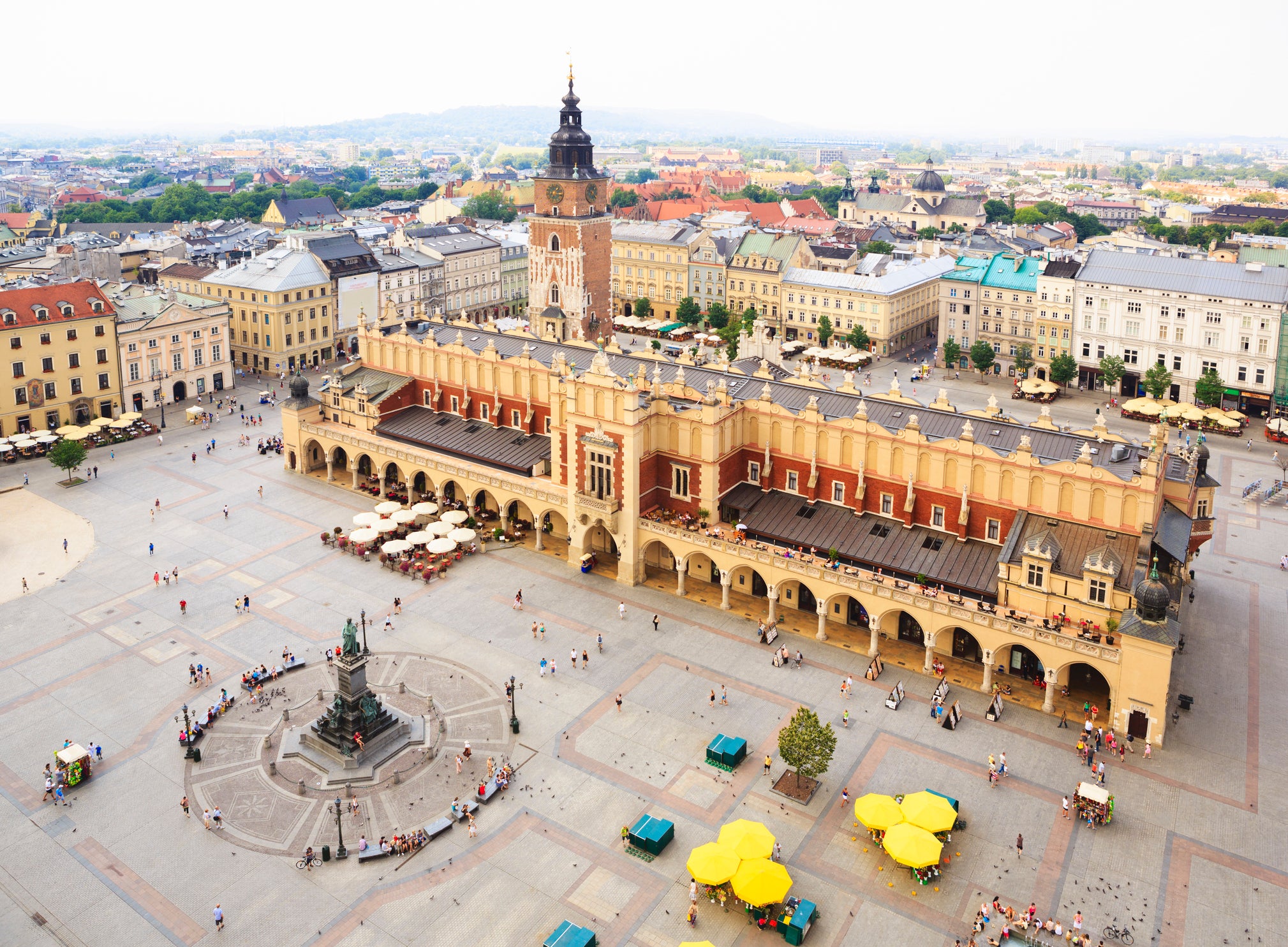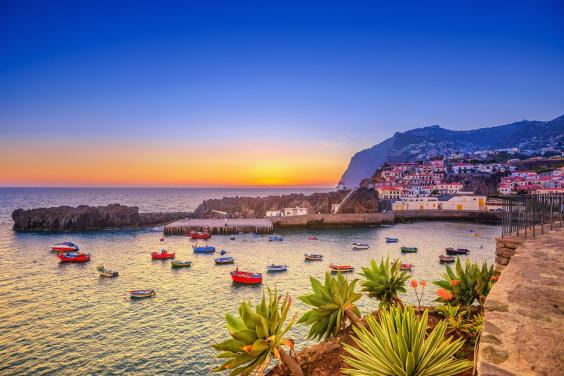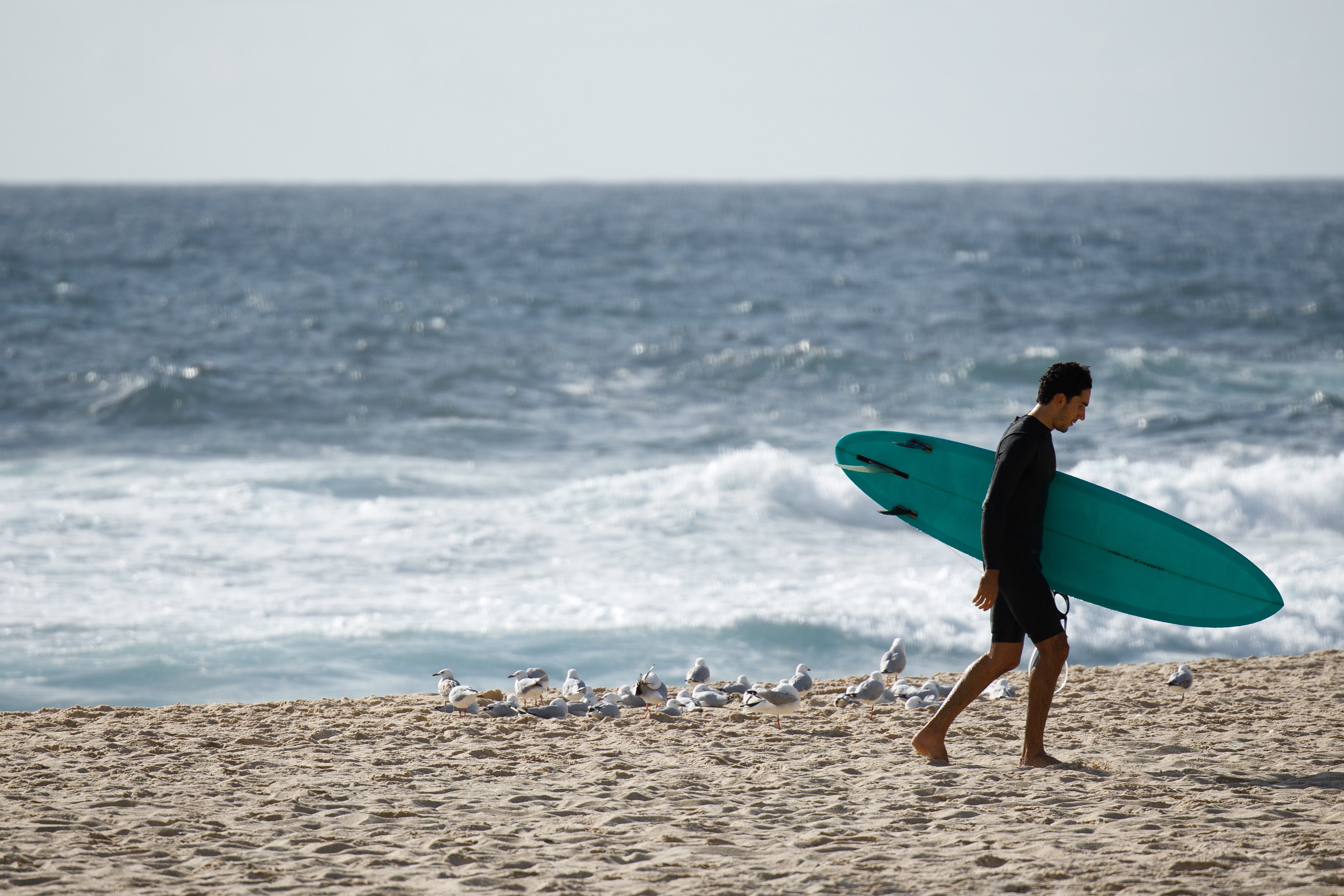Can I postpone my Krakow flight until later in the year?
Simon Calder answers your questions on delaying trips, autumn in the US, EU changes and Christmas in Oz


Q I have easyJet flights to Krakow booked for 17 March. Do you think think they might allow me to change them for a future date?
Caroline P
A Your booking is two months to the day before the earliest possible date that international travel for non-essential reasons will be permitted from England. All leisure travel within and beyond the UK is illegal until further notice. The roadmap to recovery says the government “will determine when international travel should resume, which will be no earlier than 17 May”.
In these circumstances many airlines have cancelled the vast majority of flights to and from the UK up to and including 16 May. But there is nothing to stop carriers continuing to operate international services; some people still need to fly for essential reasons. I very much doubt your flight will be going ahead. But even it does, easyJet will go beyond its statutory obligation and offer you a voucher.
Note, however, that it is not a voucher entitling you to a future trip to Poland’s most enticing city; it will be to the value of your existing booking. For a mid-March trip to Krakow, evidently booked months ahead, I imagine you paid £60 or less. Over the midsummer weekend, the lowest easyJet fare from London Gatwick to Krakow is £93 return. In contrast, Ryanair from London Stansted to the city is just £60 return. So you might prefer to get a cash refund and take advantage of the flexibility to change airline (or even destination).
If that is the case, then two elements must align: at least one of the flights, outbound or inbound, must be cancelled; and you must have paid for the 17 March booking with a card rather than a voucher. So if you rebooked the trip from last year, it may well be that you have surrendered your right to your money back. I hope you will get to Krakow some time this year, and early summer looks ideal.

Q What are your thoughts on a fly-drive trip to Oregon via San Francisco in mid-September? Will the west coast of the US be open for business by then, and what could be the likely restrictions?
Ade P
A To begin my answer unhelpfully: I simply do not know what will be possible, and what will not, by mid-September for travellers anywhere in the US. It is as far from today as early August last year – when, you may recall, we were enjoying a spell of relative freedom from restrictions in the UK.
I rate the chances of your trip going ahead in September as very high, but the good news is you can quite happily sit back and wait to see what happens.
All manner of things will change in the 200-odd days before your trip; some of them will be essential before a US vacation could be contemplated. The prime minister indicated on Monday that some international travel restrictions, including the blanket ban on outbound holidays, may be lifted by 17 May, although the destination country must also be prepared to accept us.
President Biden will need to remove his ban on British visitors to America, and the UK government will need to reduce its current severe restrictions on people returning from abroad – who must undergo three tests at a cost of several hundred pounds, and self-isolate for 10 days.
Happily, there is no need for, or benefit in, booking a trip such as yours any earlier than late August. The normal early September surge of American passengers returning to the US, which pushes up fares and makes seats scarce, is unlikely to happen; inbound tourism to Europe will be far lower than in a normal year.
Instead, Americans may be travelling domestically in greater numbers than normal. But peak season in the United States typically ends on Labour Day, which this year is 6 September. So I predict plenty of capacity on aircraft, for rental cars and at great places to stay.
My one tip, having made the journey twice: head south. That way you get the best views on the coastal sections of the route (on the Pacific side of the road rather than the inland side). And the weather generally gets warmer the further south you go, which could make a difference in September.

Q What happens if my in-laws stay longer in Madeira than 90 days from the start of the year? They left the UK on 14 December and were due to fly back on 20 March to Bristol. But their flight has been cancelled.
They seem to think they can stay there until May, when they feel it is more certain that they will get a flight. I’ve said they are exceeding their maximum stay. There are flights but not back to Bristol. What can happen if they stay beyond 90 days?
Rachel S
A Your in-laws are in the same uncomfortable position as tens of thousands of other long-stay visitors to the warmer parts of Europe.
Before Brexit, they could stay in sunny and beautiful Madeira for as long as they wished. But the UK has opted to become a “third country” for the purposes of visiting the European Union, which means that the “90/180” rule comes into play.
British citizens can visit the Schengen Area (covering most of the EU, including Portugal) for a maximum of 90 days in any 180. For Brits who were already in a Schengen country on 1 January 2021, that means they must leave by the end of March. The penalty for overstaying by more than a couple of days is generally a ban for a year or two on visiting the area, which I imagine would be most unfortunate for your in-laws.
Meeting the deadline is proving extremely challenging given the extra complications brought by the pandemic – and restrictions imposed by the UK. With foreign holidays banned, airlines have been cancelling flights like there’s no tomorrow.
Helpfully, air passengers’ rights rules mean your in-laws have every right to be booked on alternative flights – whether to another UK airport (with onward transportation) or via a hub such as Lisbon or Paris.
However, were I in their position I would not be racing to persuade my airline to rebook me as the rules require – because at the moment anyone coming back from Portugal must quarantine in an airport hotel for 11 nights, at a cost of £1,750.
So I would wait to see what happens. The hotel quarantine rule will be dropped reasonably soon. The longer they remain in Madeira, the higher the chances they will avoid incarceration. If they check with the British embassy in Lisbon, it may be that the Portuguese authorities will allow some flexibility given the extraordinary circumstances.

Q Australia at Christmas: any thoughts? I’m optimistic.
Fraser
A Optimism is always a valuable quality in travel, but I fear in this case it may be misplaced. I believe that by summer the UK will have got rid of the most draconian rules for outbound and returning travellers, such as making holidays illegal. So British travel restrictions should not play a significant part in preventing any such journey. But I fear that Australia’s rules will remain extremely strict, as the country seeks to maintain its excellent record in keeping coronavirus under control.
At present overseas tourists are banned from Australia, and there have been repeated border closures between states in response to Covid outbreaks.
Trans-Tasman journeys between Australia and New Zealand – another extremely good performer in the Covid stakes – will resume at scale in the coming months, and links with some other relatively safe locations, such as Singapore and the Pacific Islands, may be re-established. But there appears little political appetite to welcome other tourists.
Last week, the prime minister, Scott Morrison, told reporters: “I think it is a reasonable expectation that as time goes on, as the vaccination rolls out across the world and here in Australia, you should rightly expect that things will change and how we manage the virus.”
Yet even the managing director of Tourism Australia, Phillipa Harrison, was cautious, and did not mention the possibility of returning this year – saying: “There’s still going to be a lot of friction to travel, so it’s not like on 1 January 2022 the borders are going to fling open and we’re going to go back to where we are.”
Having said all that, let me be equally optimistic. The UK’s adult population should all have been offered vaccines long before Christmas. If that leads to a sharp and sustained fall in coronavirus cases here, it may be that visits are allowed – at what is normally a very lucrative time for Australia’s airlines and tourism providers. If that were to play out, then expect a heavy testing regime – and perhaps a “no jab, no go” policy to prevail.
Email your questions to s@hols.tv or tweet @simoncalder



Join our commenting forum
Join thought-provoking conversations, follow other Independent readers and see their replies
Comments